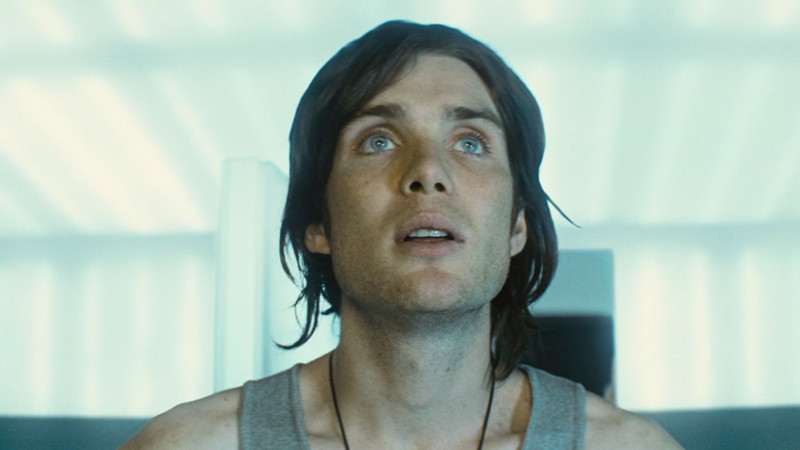
One of the most time-tested genres, science fiction, never fails to captivate audiences. Films of the genre have inspired the most passionate fan bases and curious forms of film criticism.
Science fiction is provocative due to its ability to comment on present-day sociology despite taking place hundreds or thousands of years in the future or in a completely fictional universe entirely. The great Sci-Fi films stand tall, but there are plenty of overlooked gems that are worth checking out for any dedicated cinephile.
1. Solaris (2002)

After a string of successes with Traffic, Erin Brockovich, and Ocean’s Eleven, Steven Soderbergh took a big swing by remaking one of the most audacious Sci-Fi classics in international cinema. As common with the director, this film was “one for him” after the healthy box office gross of “one for them.” in Ocean’s. Reuniting with frequent collaborator George Clooney, the director’s take on Solaris, originally a 1972 film by Andrei Tarkovsky, had big shoes to fill. Instead of competing with the novel and film, Soderbergh shifted his film in a different direction that was unnerving to audiences at the time but has only proven to be something close to transcendent.
Set on a space station orbiting the planet Solaris, the film is a meditative psychological drama about the purpose of a space mission led by Dr. Chris Kelvin (Clooney) and the painful memories that linger in his mind surrounding his late wife, Rheya (Natascha McElhone). Soderbergh juxtaposes the cold and clinical nature of the advanced space odyssey with the emotional vulnerability of a widower in his desire for a second chance.
The plot is secondary compared to the psychological journey that Kelvin undergoes. Solaris seamlessly weaves the character’s contemplation as a tone-setter for the film. It creates a chilling atmosphere more so than the eerie nature of outer space. Space is the perfect vessel to explore the human condition as it aimlessly grapples with grief, guilt, and the perception of memories. Solaris shows that human recreation of ideas is more influential than reality itself.
2. Strange Days (1995)
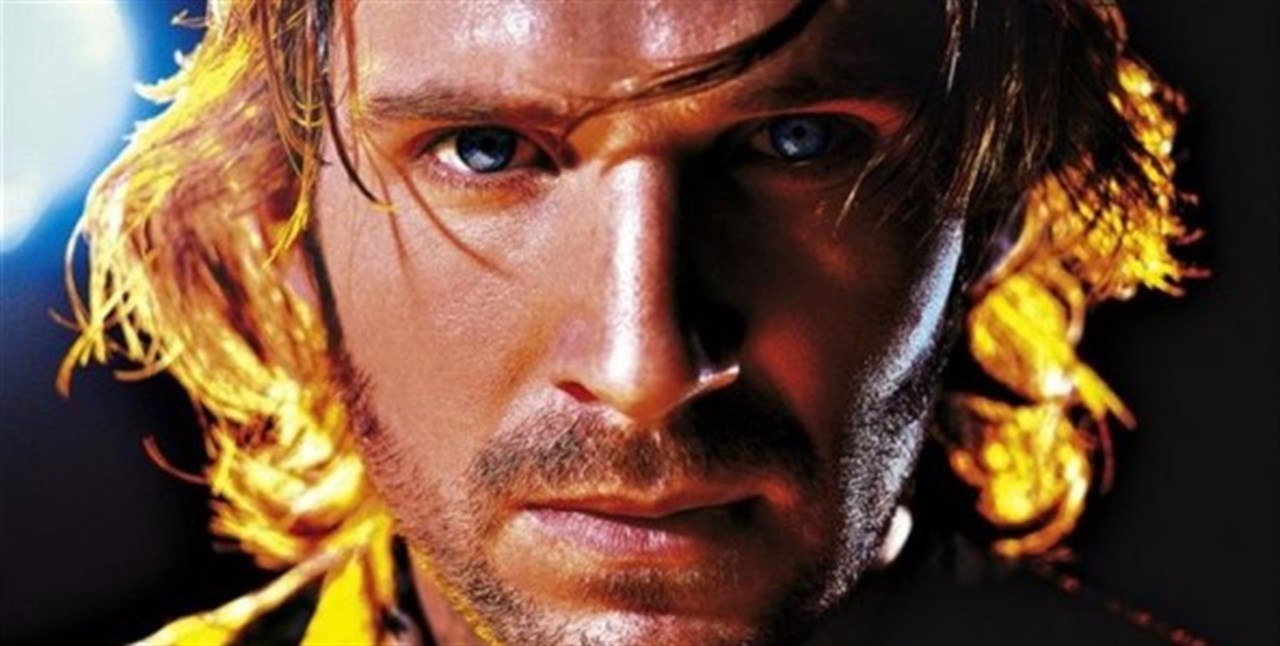
For a film as ambitious and sprawling as Strange Days, it was only inevitable that it would be misunderstood upon release. Riding the wave of her crowd-pleasing success in Point Break, Kathryn Bigelow had something profound to say about the state of America at the turn of the century. Her fears surrounding the boom of digital technology and abuse of power in law enforcement collided together in 1995 with Strange Days, a prescient dystopian science fiction examination of the country.
The film is set in a near-future Los Angeles, where a former cop turned street hustler, Lenny Nero (Ralph Fiennes) is entangled in a conspiracy involving the police and a music mogul. At the time, critics knocked Strange Days for its messy narrative. In retrospect, this gives the film a complexity of various genres, including thriller, detective story, political drama, and science fiction. The world-building is rich. Bigelow has a clear sense of using the dystopian L.A setting as a fitting backdrop to the harrowing conspiracy at hand. It walks the fine line between a fantastical world and something awfully familiar to the present.
The director’s keen awareness of exciting action filmmaking is still alive and well amid the stark sociological commentary. Between the depictions of police brutality, corporate stronghold over government, and the preferences towards technology that inspire fantasy, Strange Days is eerily prophetic. The turn of the century is sending humanity down the wrong path, and it requires the courage of stray figures to make any difference.
3. Deja Vu (2006)
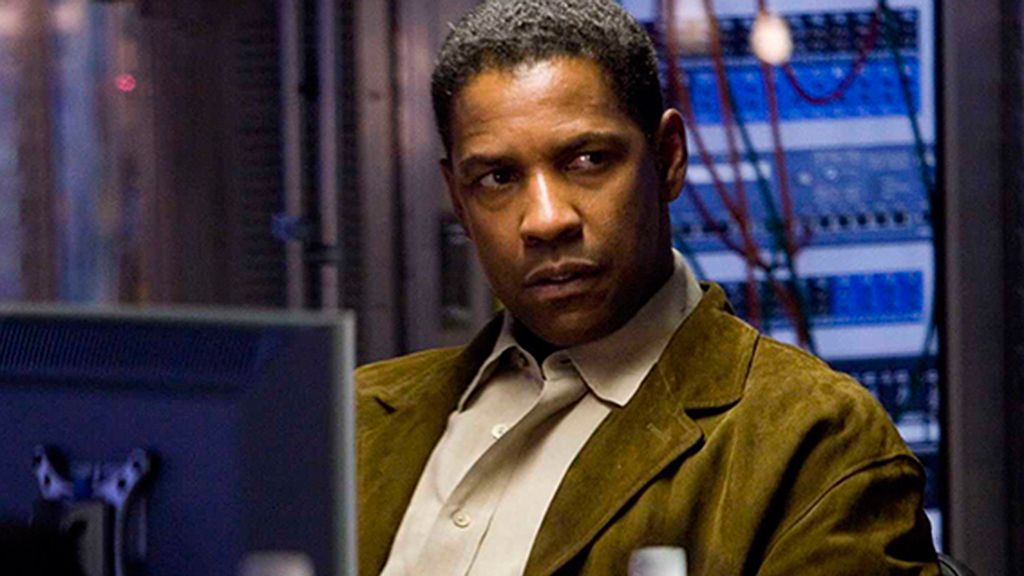
The late Tony Scott specialized in genre exceptionalism throughout his career. Not just an architect of flashy popcorn entertainment, his films are presented with real heart, and cares about his protagonists. His music video aesthetic, while disparaged at the time, gives his films a fascinating edge, and he was always looking to push the boundaries of even the most mundane shots. Big-budgeted action flicks are desperate for half of his style. The pinnacle of Scott’s abilities came in this twisted, Hitchcockian Sci-Fi thriller, Deja Vu in 2006.
Deja Vu tracks the investigation of a ferry bombing led by A.T.F. special agent Doug Carlin (Denzel Washington), who uses experimental surveillance technology to identify the bomber, but gradually becomes obsessed with one of the victims. The film is an unexpected collision of post-9/11 criminal justice and Vertigo. Scott uses the exploration of groundbreaking scientific technology to enhance the rich character work of a man with sprawling obsessions. For as slick and chaotic as Scott’s visual style is, he is highly concerned with the human beats of this story, and the fast-paced cutting of the film matches the psychological state of Carlin.
While propagated as a fun blockbuster, the film is unsettling and narratively ambiguous in its end result. Deja Vu is a special case of science fiction set in the present day, visually tied to the current moment, and speaking upon contemporary issues such as terrorism and government surveillance. Aspects that the public considers “science fiction” are well within arms reach. With a thought-provoking examination into the romanticism of technology to satisfy one’s desires, Deja Vu is worth mass reconsideration among the film community.
4. The Abyss (1989)
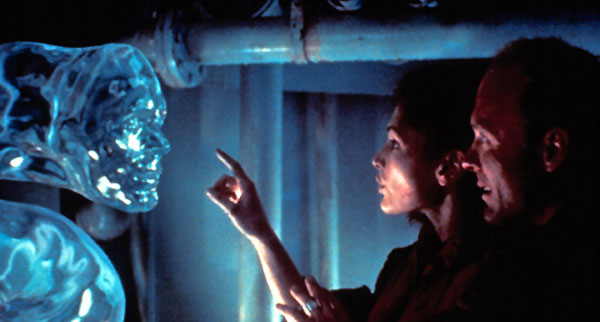
Since The Terminator, everything that James Cameron touched turned to gold. He’s never seen a film that he couldn’t turn into a box office sensation. The one outlier in his career, The Abyss, failed to reach the same financial and critical heights as his other work. Noted for its tumultuous production behind the scenes, his 1989 film is a more thoughtful piece of science fiction, removed of bells and whistles, but evident of Cameron’s fascination with underwater expeditions. The film is a grower, and its reevaluation in the public eye is a manifestation of that.
In The Abyss, a civilian diving team is enlisted to search for a lost nuclear submarine and encounters a dangerous alien aquatic species in the process. This film feels like Cameron’s most personal text, as it relates to mechanical blue-collar grunt workers pushing the limits to deep sea exploration. Ironically, the film works best before the arrival of sci-fi elements. This is because the moments of intensity as the crew submerges into the water are heartstopping. Macabre as it is, one can sense Cameron’s irresponsible filmmaking on the screen. The sincere humanism between the characters in their expedition fills in the romanticism that is often apparent in Cameron’s films.
The film’s depiction of adventure as awe-inspiring has caused many to cite this as Cameron’s attempt at making a Spielberg film. This is not inaccurate, especially when the director’s integration of advanced tech and science fiction is essential to the soul of the film. The Abyss even evokes the warmth and looseness of a hangout movie. This film will last in the public consciousness for a while, as its depth creates so much to unpack.
5. Darkman (1990)
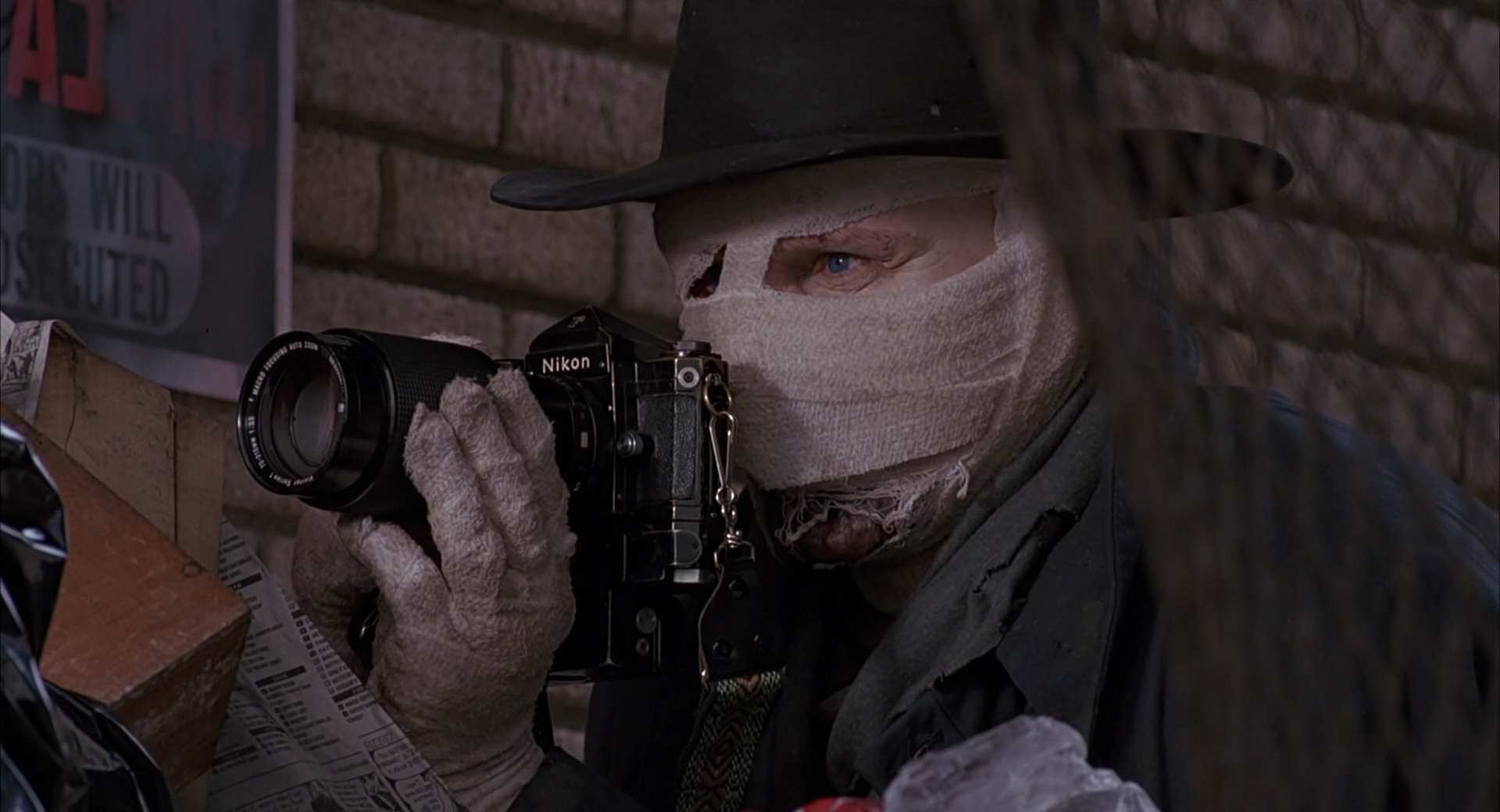
From the get-go, Sam Raimi has been one of the most idiosyncratic visionaries in cinema. His twisted spin on genre entertainment is nearly impossible to replicate. The director furthered his rollicking pulpy sensibilities in the superhero genre. Today, cape stories are synonymous with bland, corporate content designed to be indistinguishable, but Raimi showed with Darkman, his response to the superhero pulp trend kicked off by Tim Burton’s Batman, that the genre can be fresh and exciting.
The film, which is an original story, not adapted by any comics but rather an homage to the classic Universal horror monsters, Dr. Peyton Wilder (Liam Neeson) is physically and psychologically scarred by a crime boss, and as a result, takes on the alter ego of Darkman to exact revenge on his enemies. Raimi carries over his same zany, screwball black comedy mixed with sci-fi/horror elements in Darkman.
The film is unabashed in its free-wheeling tone, holding itself to zero restrictions as to how to execute a scene. Darkman is pure unbridled pulp entertainment with an unmistakable slickness in its production design, costuming, editing, and acting. All parties are aware of the vibe that the film is striving for. Despite the cognizant zaniness of the film, there is nothing ironic or winking about the film. There is a sincere operatic quality to the downfall of the Darkman character. Darkman serves as a clear blueprint for Raimi’s style and should have silenced any doubters of his ability to helm a Spider-Man movie.